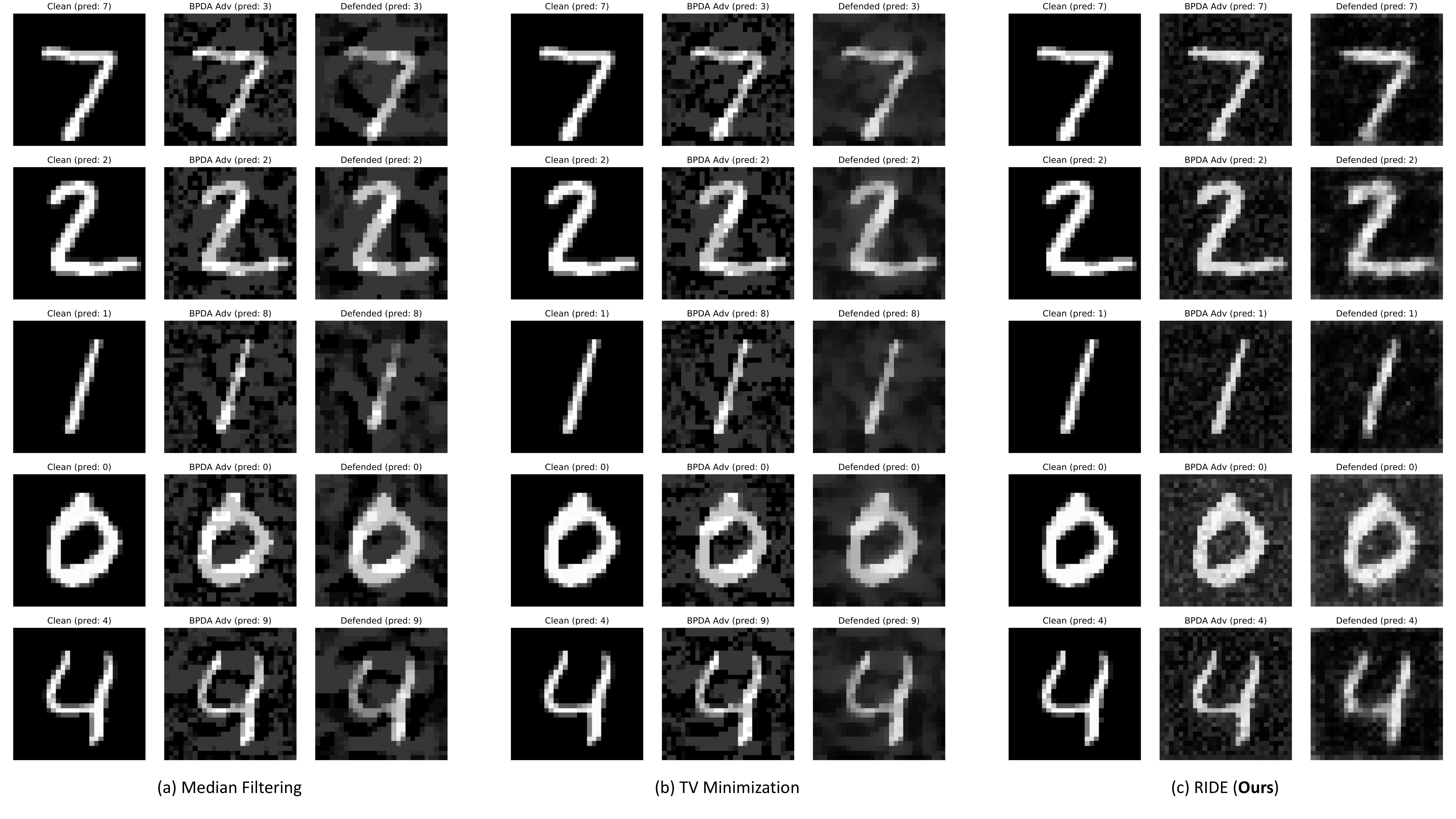Deep learning classifiers are vulnerable to adversarial attacks that only introduce quasi-imperceptible perturbations to the input images, but can completely change the predictions. Here we proposed to use a functional, which is a function of functions to defense against adversarial attacks under the white-box setting. Specifically, we propose the robust iterative data estimation (RIDE) algorithm that returns a defender function for every individual adversarial image through the self-supervised optimization of a neural network. Our defender achieves state-of-the-art defense performance on image recognition. For details, please read the preprint.
Note: work was done during an internship at Mitsubishi Electric Research Laboratories (MERL).
Figure 1 | Qualitative results of the defense against 10-iteration white-box attack (PGD attack with BPDA) on MNIST dataset using (a) median filtering, (b) total-variance minimization and (c) the proposed RIDE algorithm. The predicted label of each image is shown on top of it.
This project is licensed under the MERL Research License - see the LICENSE file for details.
If you find our work useful for your research, please cite:
@article{lin2019white,
title={White-Box Adversarial Defense via Self-Supervised Data Estimation},
author={Lin, Zudi and Pfister, Hanspeter and Zhang, Ziming},
journal={arXiv preprint arXiv:1909.06271},
year={2019}
}
